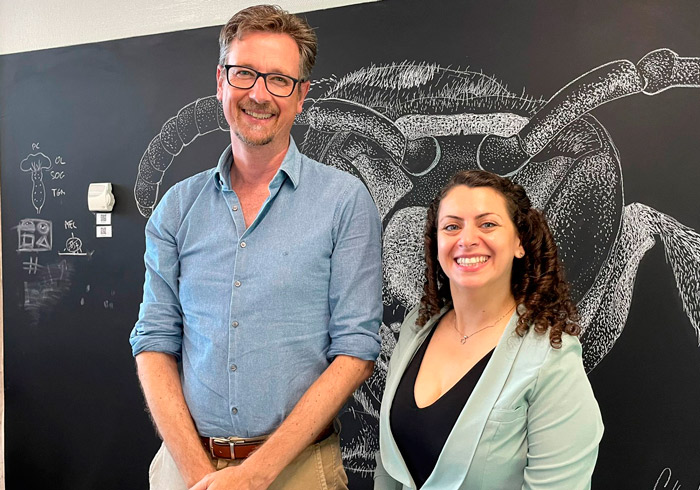
In this thesis, supervised by Manuel Porcar, the microbial diversity of several environments has been studied in the context of Lourens Baas Becking's hypothesis "everything is everywhere, but the environment selects". Part of the research results have been published in the journals Scientific Reports, International Journal of Systematics and Evolutionary Microbiology and Frontiers in Microbiology. The thesis was defended on July 28, 2022.
The number of microbial taxa inhabiting our planet has been estimated at more than one trillion. For decades, the microbial communities of natural environments have been explored, as well as the adaptation mechanisms of the species that compose them and their potential biotechnological applications. Not only natural but also artificial environments are of interest as sources of microbial diversity, although these environments and their microorganisms have received less attention. In the present PhD thesis, entitled "Extremophilic microorganisms from natural and artificial environments", the microbiome of several artificial environments was studied, especially those with particular selective pressures such as desiccation, ultraviolet radiation, salinity, nutrient deprivation, extreme temperatures, low water activity or pH variations. The results showed that, in addition to the human-associated microbiome, which may constitute a considerable fraction of artificial devices, environmental microbial consortia eventually become established in these environments. Among all these microbial communities, some species are extremophiles and some can tolerate the extreme conditions of their environment, harbouring a variety of survival mechanisms. Others have evolved adaptive mechanisms to cope with harsh environmental conditions. For this research, massive sequencing and culture analyses of microorganisms were used to describe the microbial communities associated with different environments. Thus, the succession of the microbial community in the colonization of synthetic products such as discarded chewing gum was studied. Microbial species associated with artificial products such as chewing gum, table salts and manufactured devices, such as the ice machine, were identified and their potential for biotechnological applications is discussed. Individual microorganisms have also been isolated and characterized, including a new species of the genus Sagittula, previously isolated from an aluminium can from the seafloor.
Lourens Baas Becking's popular principle "everything is everywhere, but the environment selects" has often been used as a starting point to question many investigations of microbial diversity and distribution. In this thesis the microbial diversity of several artificial environments has been studied considering such hypothesis. The microbial distribution and colonization of these environments, as well as the impact of environmental physicochemical factors on the microbial content of artificial habitats, are also discussed here. Although the early microbial community of any environment can be influenced by abiotic factors, the results support Bass Becking's hypothesis of the major role of selective pressure at the ecological microniche scale as a key factor shaping the microbial worlds that thrive in man-made environments.
The pioneering study of the microbiota of discarded chewing gum received the IgNobel prize for ecology in September 2021.
Leila Satari conducted her doctoral research in the Biotechnology and Synthetic Biology group under the supervision of Manuel Porcar, a University of Valencia researcher at the Institute for Integrative Systems Biology I2SysBio (UV-CSIC). The qualifying committee was formed by Carlos García-Ferris (I2SysBio), Cristina Vilanova (Darwin Bioprospecting Excellence), and Josefa Antón (Universitat d'Alacant), who graded the thesis as outstanding.











